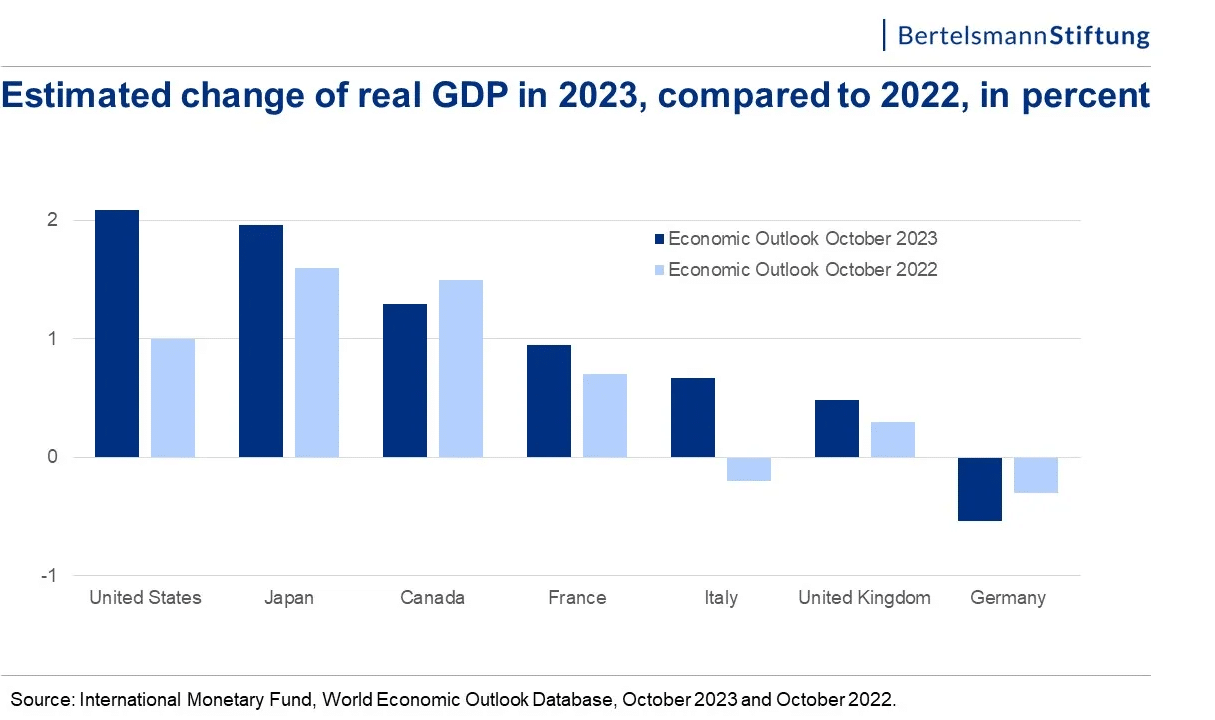COO Magazine Q1 2024
2024 The Year Ahead: Part 1
The certainty of uncertainty
In the last decade the frequency with which the COO community had to meet a succession of meaningful and often worldwide challenges and crises head on has become a working norm. Whilst the desire and day to day ambition may be to have time and resources to be looking forward and outward, the 2024 forecast is unlikely to offer a respite from firefighting, keeping the lights on and ensuring their people are happy, motivated, and remain productive.
With the winds of geopolitics indicating a stormy season ahead, there appears to be no break in the clouds. It would not be prophetic to state that much of the COO’s time in 2024 will be focused on dealing with the here and now, with resilience frameworks being tested and entrenched in a phase of continuous improvement, made more relevant and imperative with the attention of the regulators on this business functionality.
Piloting the ship through these waters will be no easy task, but hand on the wheel and pilot the COO must do. They will do their best to seek out business opportunities presented by technological innovation, with Al the two-letter couplet on everybody’s tongue, or seeking opportunity amidst instability and chaos, more often than not caused and presented by geopolitical events, but their mantle and metal will be tested. 2024 will demand they lead from the front, not questioning the need to be in the metaphorical trenches with employees and colleagues, digging deep into personal reserves to be the voice of reason, and one of purpose and constancy.
3 certainties in 2024 are a worldwide stuttering economy, a multitude of democratic elections, and mankind at war. Democracy has given notice of a shift from global liberalism to nationhood, a step and not minor shift from middle-left to the right, running in parallel to the continuation of a war on the European continent between the Ukraine and Russia, and no reasonable hope of a resolution to the war and consequent human calamity that has unfolded in the Middle East.
Let us not forget the presence and challenge of climate change that increasingly many, a majority perhaps, believe is the singular challenge that must be addressed, as its implications are becoming apparent far more quickly than most feared, even the more educated on this matter. The speed of climate change has led to a cottage industry of recurring and frequently updated estimations on the extent of the climate crisis. In a world that appears to be stepping away from globalisation, climate change is the only challenge facing all nations and their peoples and unites us all.
“The continuation of a war on the European continent between the Ukraine and Russia, and no reasonable hope of a resolution to the war and consequent human calamity that has unfolded in the Middle East”
The Economist delves a little deeper, dissecting the above and leading the reader through the following thought provoking titles:
Democracy in Danger 2024 will be stressful for those who care about liberal democracy
“In theory it should be a triumphant year for democracy. In practice it will be the opposite”
America’s fateful choice America will need a new vocabulary to discuss its presidential election
“Unprecedented, uncharted, not unthinkable”
Middle East in turmoil Don’t give up on peace in the Middle East
“But the process of getting there will be alarmingly fragile”
Multipolar disorder The world must try to break a vicious cycle of insecurity
“The fragility of the Western coalition is a crucial weakness”
Whither Ukraine? Europe needs to step up support for Ukraine
“As a long war with Russia looms, American support can no longer be depended on”
The world economy Don’t count on a soft landing for the world economy
“Inflation has fallen, but vulnerabilities remain”
Energy politics in 2024 The green transition will transform the global economic order
“But the winners and losers are not as obvious as you might think”
Artificial Intelligence in 2024 Generative A1 holds much promise for business
“Just don’t expect its overnight adoption”
Upon these unstable foundations the world’s economy rests:
Energy politics in 2024 The green transition will transform the global economic order
“But the winners and losers are not as obvious as you might think”
The U.S.
Bill Connerly (Forbes December 27, 2023) writes that the reasons to expect a slowdown in 2024 [in the U.S.] are multi-faceted “Despite the generally favourable leading indicators, the sharp increase in interest rates (and reduction of the money supply) that we have had over the last two years should still trigger an economic slowdown. Growth will be positive but lower than the long-run average. Unemployment will probably rise by a little but go not terribly high. Inflation will continue declining to about the two-percent target set by the Federal Reserve.
The Fed will not feel strongly that it needs to cut interest rates, though they have stopped contemplating further increases. By mid-2024 they will probably bring short-term interest rates down to a neutral level. Their logic will be that they don’t need to adopt an easy-money policy, but they should not continue their past tight-money actions. The U.S. economy faces risks, with geo-political concerns topping the list. The war in Israel shows Iran’s efforts to weaken U.S. allies, including Ukraine. Chinese pressure on Taiwan also justifies worries. The United States could be drawn into support for Guyana if Venezuela invades that country’s oil fields, leaving us vulnerable to other challenges.
Here at home, profligate spending by both parties threatens our financial system, though the crisis is probably a long way off. Add to that the usual animal spirits – people getting frightened and holding on to their money and companies becoming pessimistic about the value of capital spending. That many of us economists predicted recession, which is not coming true right away, does not mean that a recession is impossible. Even if we’ve dodged that bullet, contingency plans for alternative economic scenarios are always good business policy”.
“The U.S. economy faces risks, with geo-political concerns topping the list”
Europe
Thieb Petersen writes that “The global economy will grow slightly faster in 2023 than hoped at the beginning of the year. This recovery process is likely to continue in 2024. However, there are also several uncertainty factors, particularly high interest rates, the threat of energy price increases and geopolitical tensions. The uncertainties associated with these factors put a damper on companies’ investment activities – and, therefore, also on economic development.
“European Economic Outlook in 2024 will be a slow recovery, hampered by geopolitical risks”
Here is a look back at three factors that shaped the global economy in 2023 and two factors that will influence it in 2024:
#1 – Stable energy supply supports growth and employment
#2 – High energy prices and high interest rates dampen economic recovery
#3 – Energy exporters gained, industrial production weakened
Two factors to watch in 2024:
#1 – High debt limits room for manoeuvre
#2 – Geopolitical tensions weaken international trade
Asia and the Pacific
To help contextualise the purpose of the worldwide economy, let us look at Asia and the Pacific through a different lens.
In recent years and possibly accelerated by our individual and collective experiences of Covid, purpose has found a voice and a platform. Not just the purpose of the company where you work, but your own purpose and how this is served by who you work for and taking this one step further the greater purpose of the worldwide economy in which your company plays a part. To this end let’s understand what tomorrow’s leaders are being taught about the world’s economy and its purpose, referring to the National Geographic learning for grades 3 to 12 the following makes succinct and easy reading:
“The global economy is innately tied to trade; it allows countries around the world to obtain any resource they may want, whether it is produced on the home front… This availability of resources is facilitated through trade. The global economy allows us to eat the foods we want all year round and buy clothing and gadgets at lower prices. During times of peace, it is beneficial in a global economy, to see other nations succeed. On the other hand, during times of unrest, dependence on outside nations, in a global economy, may seem scary. Due to globalization and other factors, it is impossible for large, industrialized nations to exit the global economy without devastating effects”.
The National Geographic further notes on globalisation:
- Globalization is the connection of different parts of the world. Globalization results in the expansion of international cultural, economic, and political activities.
- Globalization is a term used to describe the increasing connectedness and interdependence of world cultures and economies.
- Globalization has led to increases in standards of living around the world, but not all its effects are positive for everyone.
“Globalization is a term used to describe the increasing connectedness and interdependence of world cultures and economies”
Therefore, let us use this context to investigate APAC, where we can assess the success of the global economy, in placing a roof above our heads and “allowing us to eat the foods we want all year round and buy clothing and gadgets at lower prices”.
APAC 2024 begins against a bleak backdrop, with insecurity and economic instability on top of humanitarian crisis and climate-induced emergencies. Crippling insecurity and economic instability, and a decline in funding to support a projected 15.6 million forcibly displaced and stateless people in the region, where two complex situations are major causes of forced displacement and statelessness: Afghanistan and Myanmar.
Across the region, UNHCR will seek the inclusion and empowerment of people who have been forced to flee and will aim to bring a sustainable end to their forced displacement, while easing the pressure on host communities. In 2024, UNHCR will prioritize education, livelihoods, health, mental health and psychosocial support. It will bolster multi-stakeholder approaches and partnerships, joining forces to advocate on behalf of displaced people in ways that enhance their resilience and facilitate their inclusion in national systems, such as those achieved in the Islamic Republic of Iran.
In support of the Secretary-General’s Action Agenda on Internal Displacement, UNHCR will assist in stabilising the two big internally displaced populations in the region and will support protection-sensitive IDP returns. In Afghanistan, 60,000 refugees and 300,000 IDPs could return in 2024, and UNHCR will continue its role as a catalyst for attracting investment into the 80 Priority Areas of Return and Reintegration. In line with the priorities of the Global Compact on Refugees to advance long-term planning, UNHCR will shift from a one-year to a multi-year inter-agency Regional Refugee Response Plan for Afghanistan to promote improved access to asylum and protection, and to support resilience, inclusion and solutions. (source: https://reporting.unhcr.org/global-appeal-2024/regional-overviews/asia-and-pacific)
2024 population planning figures: 15.6 million forcibly displaced and stateless people¹ | 12% of global total
The complexity of the world we live in requires a simplicity of thought and focus to meet this challenge. It requires an ability to be confident in the robustness of your defences to withstand shocks to the system, be they anticipated or not. It requires an ability to turn on a sixpence, using experience and intuition, and managerial, organisational and leadership skills to field the unexpected.
More so than ever it requires you to be thinking less so about the past and how to avoid repeating mistakes, and more so about the here and now managing non-financial risks, be the emerged, emerging, or anticipating those on or beyond the horizon.









